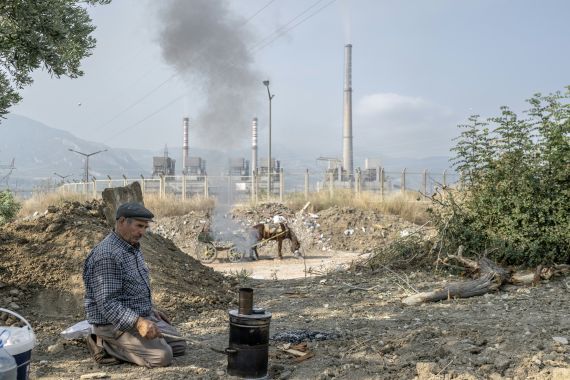The United Nations (UN) has declared that the concentration of greenhouse gases in the Earth’s atmosphere reached unprecedented levels in 2022, propelling the world further down the perilous path of climate change. The UN’s World Meteorological Organization (WMO) sounded the alarm in a bulletin released on Wednesday, highlighting that three major greenhouse gases hit record highs last year, pushing our planet into uncharted territory. Despite decades of scientific warnings and numerous global climate conferences, the world is still careening “in the wrong direction,” warns WMO Secretary-General Petteri Taalas. This dire announcement comes just weeks before the UN’s annual climate summit kicks off in Dubai, where world leaders are expected to grapple with the urgent need to curb fossil fuel usage and chart a sustainable course for the future.
Global Crisis Escalates as Three Key Greenhouse Gases Break Records:
The UN’s World Meteorological Organization paints a grim picture of our environmental trajectory, stating that carbon dioxide levels, the primary driver of climate change, have skyrocketed to a staggering 50 percent above pre-industrial averages. However, carbon dioxide isn’t the sole culprit; other greenhouse gases like methane and nitrous oxide also reached unprecedented levels in 2022. The WMO report underscores that these soaring concentrations put the world on a trajectory that significantly exceeds the targets set by the Paris Agreement, threatening catastrophic consequences for the planet.
UN Secretary-General Urges Urgent Action Ahead of Climate Summit in Dubai:
As the world hurtles towards a climate summit in Dubai this month, UN Secretary-General Petteri Taalas issues an urgent call to action. He emphasizes that the global community is facing an imminent and escalating crisis, with “no end in sight” unless immediate and drastic measures are taken. The upcoming summit in Dubai may be a turning point, providing a platform for world leaders to address the critical issue of phasing out fossil fuels before 2050. However, the WMO’s report suggests that, thus far, major carbon-emitting nations have fallen far short of the necessary cuts, raising doubts about the feasibility of achieving meaningful change on a global scale.
Extreme Weather, Sea Level Rise, and the Urgent Call to Cut Fossil Fuel Consumption:
The consequences of skyrocketing greenhouse gas concentrations are ominous, warns Taalas. Rising temperatures well above the Paris Agreement targets are now inevitable, bringing with them a host of alarming developments. From intense heatwaves and erratic rainfall patterns to accelerated ice melt, sea level rise, and the acidification of oceans, the Earth is poised to face an onslaught of environmental challenges. Taalas emphasizes that a staggering 80 percent of greenhouse gas emissions emanate from the G20, underscoring the urgent need for collective action. While cutting carbon emissions is crucial, the Secretary-General stresses the equally pressing need to reduce the consumption of fossil fuels, highlighting the time lag associated with atmospheric carbon removal—taking thousands of years—and its contribution to irreversible trends like the rise in sea levels.















